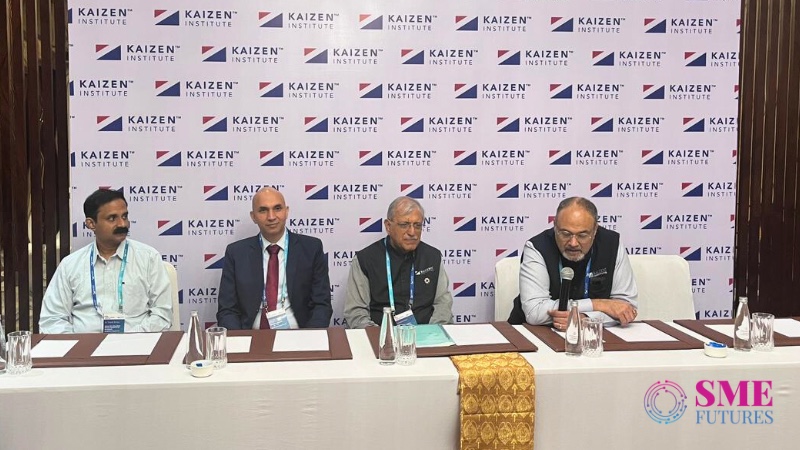The 13th edition of Kaizen Congress India 2024, organised by the global consultancy firm, Kaizen Institute India, elaborately discussed the stringent need to push towards adapting Environment, Social, and Governance (ESG) strategies in the business world. According to a study conducted by the Morgan Stanley Institute for Sustainable Investing and Morgan Stanley Wealth Management, 77% of the investors globally have piqued interest in enterprises that prioritise their environmental and social impact. Further, nearly 60% of the globally surveyed investors indicated allocating their finances towards sustainable investments within the coming financial years.
With this in consideration, Kaizen Congress India 2024 extensively expounded on effective methodologies for organisations to adopt ESG practices to not only develop sustainable and responsible business operations but also efficiently identify cost wastage and increase investment opportunities. The two-day summit witnessed massive participation from industry stalwarts across a myriad of domains, who came together to exchange views on the increasingly significant role of ESG strategies, as sustainability and social responsibility continue to dominate the interests of investors globally.
Commenting on the urgency to adopt ESG, Vinod Grover, Managing Director, South Asia & Africa, Kaizen Institute, noted, “Several recently conducted studies have indicated a significantly growing increase among investors opting for organisations that are more ESG-oriented. It, therefore, becomes imperative for businesses to leverage ESG strategies for transitioning from a profit-driven model towards practices that prioritise environmental and social responsibility.”
Jayanth Murthy, Joint Managing Director, South Asia & Africa, Kaizen Institute, noted, “Sustainability has become a paramount concern for many businesses. Industrial leaders are undergoing a paradigm shift, transitioning towards a business model that is more in line with today’s social and moral responsibilities. However, a clear and comprehensive roadmap for integrating sustainability practices within operations remains elusive. As India nears its SDG target of 2030 to reduce the carbon intensity of its GDP by 45%, addressing the challenges of sustainability is crucial for achieving sustained growth, optimising costs, and enhancing productivity.”
Stressing on the imperative for businesses to integrate ESG principles, Dr. Pradeep Panigrahi, Head – Corporate Sustainability, Larsen & Toubro Limited, India, stated, “As the world continues to move towards exploring sustainable means of life, enterprises across domains have begun to recognise their substantial role in today’s world in combating climate change. The active involvement of senior leadership is crucial for optimal implementation of ESG frameworks, particularly in ensuring the diligent pursuit of objectives. A successful execution of an ESG strategy not only aids in enhancing an organisation’s ethical and sustainable practices but also immensely assists in improving operational efficiency, and thereby reducing their cost wastage. This emphasis on ESG strategic planning has become a top priority at the board level, reflected in its imminent focus on developing robust, yet realistic and practical frameworks, catered uniquely to their operational needs.”
Emphasising the need to incorporate ESG strategies, Tejashree Joshi, Head of Environmental Sustainability Godrej & Boyce Mfg. Co. Ltd., further stated, “As consumer demand for sustainability and social responsibility continues to persist, contemporary business operations are increasingly expected to demonstrate an extended ethical and moral responsibility towards society. A 2021 survey revealed that nearly half of consumers reported paying a premium of 59% for products perceived as sustainable or socially responsible. The changing consumer trend further warrants increased priorities to integrate sustainable solutions into their core strategies.”
The Kaizen Congress India (KCI) is an annual summit, hosting a multitude of industry leaders across a plethora of sectors, providing a global platform to exchange ideas and showcase Kaizen methodologies and their applications. Since its inception, KCI has hosted over 2,000 attendees, over 350 companies, with over 50 renowned speakers, and has presented nearly 350 case studies.










